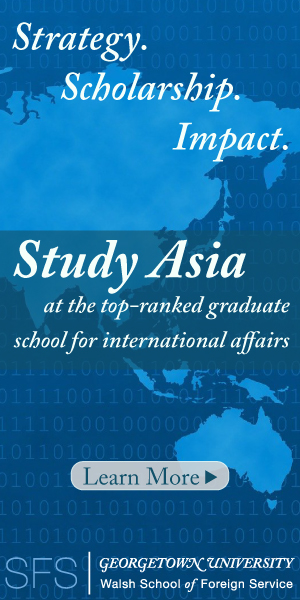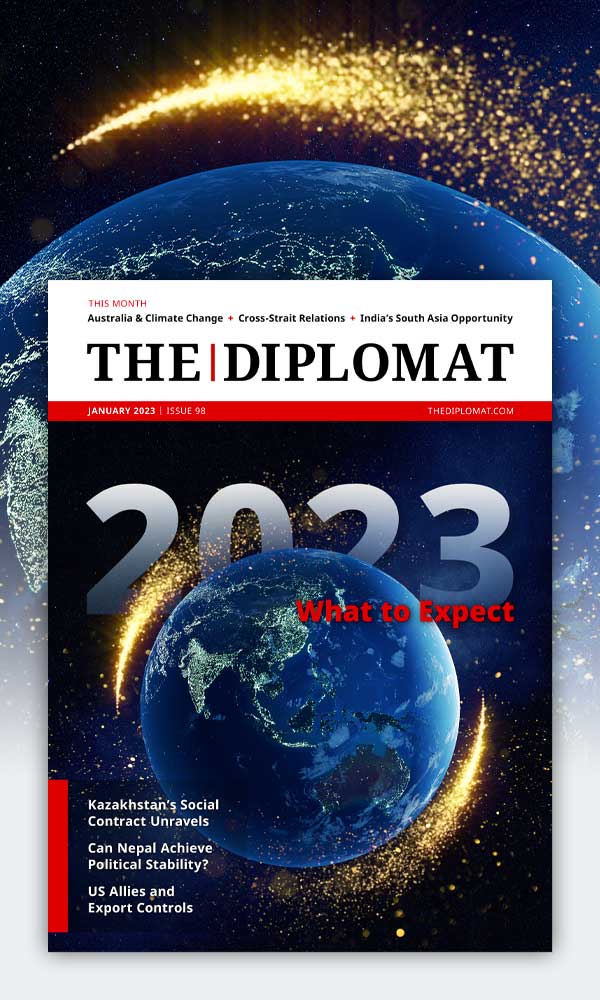| Welcome to the latest issue of Diplomat Brief. This week our top story highlights the desperate plight of one ethnic Kazakh in Xinjiang, who was freed from detention only to face de facto house arrest. We also have an interview with Ambassador Kairat Sarybay, the secretary general of the Conference on Interaction and Confidence Building Measures in Asia (CICA), on the future of the organization. |
| Story of the week |  | Society No Escape: Camp Survivor Describes Life Under House Arrest in XinjiangWhat Happened: Zhanargul Zhumatai, a Kazakh artist and former editor, was one of the hundreds of thousands of Uyghurs, Kazakhs, Kyrgyz, and other Turkic ethnic people sent to detention camps in Xinjiang in 2017. Zhumatai was detained for the “crime” of visiting Kazakhstan and having the apps for Instagram and Facebook on her phone. She was released two years later – but freedom remained a distant dream. Chinese authorities claim that everyone has been released from what they call “vocational training centers” (and what survivors say are internment camps). But many of the released, like Zhumatai, find their lives shattered forever. Our Focus: Zhumatai couldn’t find work because of her detention; she couldn’t even travel within Urumqi, her hometown, without setting off alarms at the numerous facial recognition checkpoints around the city. Desperate, she shared her plight with international activists – a very rare act, as most who speak on the record about their persecution only do so after having escaped abroad. Now Zhumatai reports that the Chinese authorities are threatening her family and are determined to involuntarily admit her to a psychiatric hospital. “They [the Urumqi police] asked me why I published government secrets but I said, ‘These are not government secrets. This is what I am experiencing. I am speaking the truth,’ ” Zhumatai told The Diplomat. “I am an innocent person; I have not committed any crime. I don’t know what will happen to my life… I live in utter fear.” What Comes Next: Zhumatai said she took the step of contacting foreigners with her story because “I have a wish that all the whole world knows about my case – not only for me but for all the Kazakh nomadic people who have suffered.” Feeling she has exhausted her options for a life in Xinjiang, she wants to move to Kazakhstan, but fears arrest is not far away. “Should something happen to me,” she said, “the world must do more to raise awareness and hold the authorities to account.” Read this story |
| Behind the News | INTERVIEW Kairat SarybayAmbassador Kairat Sarybay, the secretary general of CICA, on his organization’s potential to expand its role: “In the future, CICA will definitely take a prominent place in the comprehensive security architecture of the Asian continent and the world.” Read the interview |
| This Week in Asia | Northeast Asia Japan’s PM Kishida Visits the U.S.On Friday, Japanese Prime Minister Kishida Fumio will pay a visit to the United States. In Washington, U.S. President Joe Biden and other officials will lend their support to Japan’s new National Security Strategy, an ambitious overhaul of the country’s defense policies. But behind the scenes, Kishida will be hoping for assurances to assuage growing concerns about U.S. extended nuclear deterrence. Find out more | South Asia Bangladesh’s Busy Week of DiplomacyBangladesh’s Foreign Minister A.K. Abdul Momen is having a busy week. On Monday, he met with the South Asia director of the U.S. National Security Council. Then, in the wee hours of Tuesday morning, Momen had a surprise meeting with China’s new foreign minister, Qin Gang. And Momen will likely meet with yet another U.S. official, this time from the State Department, this weekend. The diplomatic flurry comes as Bangladesh struggles to right its economy amid opposition protests as its next election date nears. Find out more | Southeast Asia Malaysian PM Returns From First Overseas TripMalaysia’s Prime Minister Anwar Ibrahim this week embarked on a two-day state visit to Indonesia, his first trip abroad since taking office in November. In talks with his Indonesian counterpart Joko Widodo, Anwar pledged support for the construction of the country’s new capital, Kalimantan, on the island of Borneo, expressing hopes that it could benefit the nearby Malaysian states of Sabah and Sarawak. The pair also addressed the treatment of Indonesian migrant workers in Malaysia, and promised to increase ASEAN’s pressure on the military junta in Myanmar. Find out more | Central Asia A Gloomy Economic Outlook for Central AsiaIn its latest Global Economic Prospects report, the World Bank forecasts slowdowns across the world, with Central Asia being no exception. Growth for the Europe and Central Asia region, excluding Russia and Ukraine, is forecasted to halve in 2022 – down to 4.2 percent. Inflation, rising prices, slowed investment, and the uncertain future course of the war in Ukraine are all putting a damper on growth. Find out more |
| Visualizing APAC |  | Thailand is eager to welcome back Chinese travelers, who accounted for over a quarter of international tourists to Thailand before the pandemic. See the full picture |
| Word of the Week | Politiccs Godi MediaA slang term used in India to refer to the government’s “lapdog journalists.” (Godi comes from combining the Hindi word “gode,” meaning lap, and “Modi,” India’s prime minister) Find out more |
| Webinar Alert | The Diplomat Asks Mongolia: Politics and Protests in 2023In December 2022, Mongolians took to the streets of Ulaanbaatar en masse for a week of protests. The immediate cause was allegations of corruption in Mongolia’s coal industry, but the demonstrations became intertwined with general concerns about Mongolia’s economy, inequality, and lack of opportunities for young people. Also at play were larger political battles playing out between the ruling and opposition parties, and within the ruling party itself. With such a dramatic end to 2022, what should we expect from Mongolian politics in 2023? Join us on January 17 at 8:00 p.m. U.S. Eastern time / January 18 at 9 a.m. Ulaanbaatar time for a discussion on Mongolia’s politics and protests. Sign up for the webinar |
|  |




